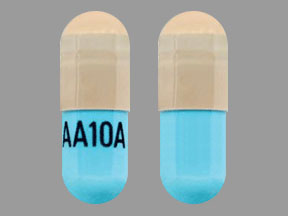
Thiothixene Coupons & Savings Card – Discount Prices from $26.75
My prescription
Edit
1MG, Thiothixene (90 Capsules)
Select pharmacy

CVS
$46.29
COUPON PRICE
Albertsons
$26.75
COUPON PRICE
Walgreens
$40.65
COUPON PRICE
Walmart
$80.55
COUPON PRICEThiothixene savings card
Show this card to your pharmacist
Albertsons
$26.75
BIN
ID
PCN
GRP
019876
LH3DBB7C6D
CHIPPO
LHX
Powered by
Related typical antipsychotics prescriptions
More prescriptions for schizophrenia
Related typical antipsychotics prescriptions
More prescriptions for schizophrenia
Thiothixene dosage forms
Dosage Quantity Price from Per unit 1MG 90 Capsules $26.75 $0.30 1MG 100 Capsules $28.88 $0.29 2MG 1 Capsule $1.01 $1.01 2MG 30 Capsules $15.98 $0.53 2MG 100 Capsules $35.77 $0.36 5MG 1 Capsule $3.88 $3.88 5MG 90 Capsules $46.08 $0.51 5MG 100 Capsules $50.37 $0.50 10MG 1 Capsule $5.13 $5.13 10MG 100 Capsules $67.93 $0.68
| Dosage | Quantity | Price from | Per unit |
|---|---|---|---|
| 1MG | 90 Capsules | $26.75 | $0.30 |
| 1MG | 100 Capsules | $28.88 | $0.29 |
| 2MG | 1 Capsule | $1.01 | $1.01 |
| 2MG | 30 Capsules | $15.98 | $0.53 |
| 2MG | 100 Capsules | $35.77 | $0.36 |
| 5MG | 1 Capsule | $3.88 | $3.88 |
| 5MG | 90 Capsules | $46.08 | $0.51 |
| 5MG | 100 Capsules | $50.37 | $0.50 |
| 10MG | 1 Capsule | $5.13 | $5.13 |
| 10MG | 100 Capsules | $67.93 | $0.68 |
| 10MG | 360 Capsules | $225.06 | $0.63 |
Thiothixene Warnings
The use of thiothixene involves specific safety considerations and warnings that are important to understand for both patients and healthcare providers. Below are the key points regarding potential risks and precautions:
Increased Risk for Older Adults with Dementia: Thiothixene is not approved for treating dementia-related behavior problems as it may increase the risk of death in older adults with dementia-related psychosis. Discuss alternative treatments with your doctor if dementia-related symptoms are present.
Movement Disorders: Long-term use or higher doses of thiothixene may lead to difficulty controlling muscle movements, known as tardive dyskinesia. This condition is more common in older adults and females 65 years and older. Consult your healthcare provider immediately if you notice involuntary movements.
Muscle Contractions: The medication can cause dystonia, characterized by abnormal and prolonged muscle contractions, particularly at higher doses. Report any sudden muscle spasms to your prescriber, especially if they occur in the neck or throat.
Neuroleptic Malignant Syndrome (NMS): This rare but serious condition can occur with thiothixene, presenting symptoms such as high fever, muscle stiffness, and confusion. Stop using the medication and seek emergency medical attention if these symptoms occur.
Seizure Risk: Thiothixene may increase the likelihood of seizures, particularly in individuals with a history of seizures or those undergoing alcohol withdrawal. Inform your healthcare provider about any history of seizures before starting thiothixene.
Drowsiness: Thiothixene can cause drowsiness, affecting your ability to focus. Avoid activities requiring alertness, such as driving, until you know how the medication affects you, especially if consuming alcohol or other sedative medications.
Low White Blood Cell Count: This medication may lower white blood cell counts, increasing infection risk. Regular blood tests may be recommended. Alert your prescriber if you experience symptoms like fever or fatigue.
Vision Changes: Long-term use of thiothixene can lead to vision changes. Report any visual disturbances to your healthcare provider immediately.
Prolactin Levels: Thiothixene can elevate prolactin hormone levels, causing symptoms such as nipple discharge and irregular menstrual periods. Regular monitoring of prolactin levels may be necessary.
Contraindications:
Avoid using thiothixene if you have:
- Blood circulation issues
- Severely reduced brain activity or are in a coma
- Abnormal blood conditions
Always consult with your healthcare provider if you have concerns or questions about using thiothixene to ensure it is safe for your condition.
Thiothixene Side Effects
Common side effects:
- Drowsiness
- Dizziness
- Lightheadedness
- Dry mouth
- Blurred vision
- Constipation
- Trouble sleeping
Less common but important to monitor:
- Muscle spasms or stiffness
- Shaking
- Restlessness
- Mask-like facial expression
- Drooling
- Trouble swallowing
- Shuffling walk
- Fainting
- Confusion
- Depression
- Suicidal thoughts
- Difficulty urinating
- Easy bruising or bleeding
- Severe stomach pain
- Seizures
- Increased prolactin levels
- Unwanted breast milk
- Menstrual changes in females
- Sexual difficulties in males
- Enlarged breasts in males
Serious side effects:
- Tardive dyskinesia
- Neuroleptic malignant syndrome (NMS)
- Allergic reaction
Thiothixene Interactions
Interactions with high risk of serious adverse effects and should be avoided:
- Bepridil
- Bromopride
- Cisapride
- Dronedarone
- Mesoridazine
- Metoclopramide
- Pimozide
- Piperaquine
- Saquinavir
- Sparfloxacin
- Terfenadine
- Thioridazine
- Ziprasidone
Interactions with moderate risk that may require dose adjustment, closer monitoring, or timing changes:
- Alfuzosin
- Amiodarone
- Amisulpride
- Amitriptyline
- Lithium
- Guanethidine
- Prazosin
- Alcohol
- Marijuana
- Cetirizine
- Diphenhydramine
- Alprazolam
- Diazepam
- Codeine
